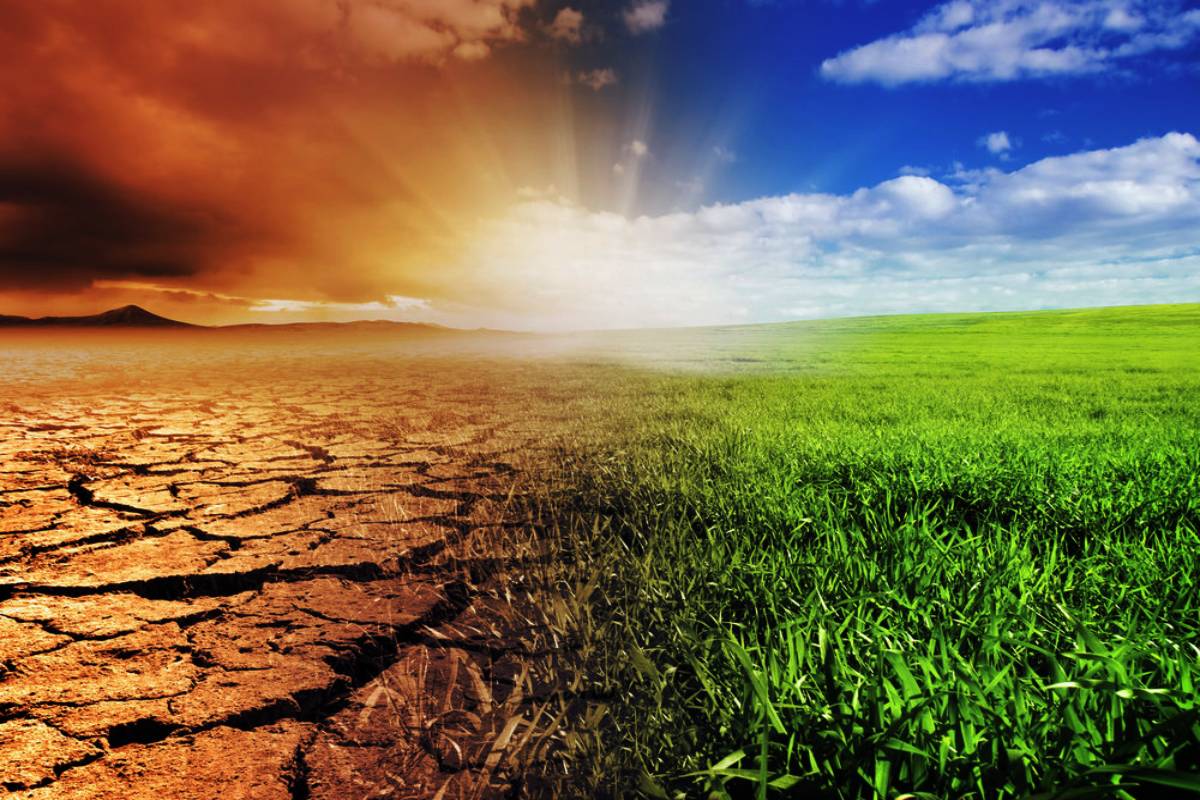Worldwide industrial development, growth in population, and a permanent increase in demand for energy have given rise to environmental problems, which are global. Carbon dioxide has a concentration of about 0.03% in our atmosphere. This concentration is increasing continuously due to the burning of fossil fuels with rising in the use of vehicles etc if this situation continues without any corrective measures, the concentration of carbon dioxide may double in 2030.
Advertisement
What is the greenhouse effect?
The greenhouse effect is a natural process in which certain gases, known as greenhouse gases, trap heat that radiates from the earth’s surface. In fact, a greenhouse is a construction of transparent walls and roofs in cold countries to provide adequate heat to the soil and plants. The solar heat/energy penetrates the greenhouse but it is prevented from escaping, and this heat remains within the greenhouse, keeping it warm. The greenhouse metaphor refers to the fact that greenhouse gases function much like the glass panel that traps heat inside the greenhouse.
It is a naturally occurring phenomenon within certain atmospheric gases, such as water vapour and carbon dioxide, regulating the radiant energy and maintaining a balance of the earth, thus making it habitable. The term “greenhouse effect” was first used in 1827 by Jam. Further.
Importance of greenhouse effect
If there will be no greenhouse effect and the atmosphere becomes transparent to the outgoing Long wavelength radiation emission from the earth‘s surface, the mean equilibrium temperature of the earth’s surface would be considerably low and probably below the freezing point of water. According to one estimate, in the absence of greenhouse gases, the earth‘s average global temperature will be 18° C, rather than its current temperature. These greenhouse gases act as a thermal blanket.
Causes of the greenhouse effect
Though there are a lot of greenhouse gases, carbon dioxide is a worse offender than any of the others. This is mainly because of its sheer qualities, which human activities generate through the burning of fossil fuels. Scientists recognise five important greenhouse gases namely carbon dioxide, water vapour, chloro-fluoro carbon, methane, and nitrogen oxide. Besides these, ozone is also considered a greenhouse gas.
Impact of greenhouse effects
Change in climate and global warming is the main impact of the greenhouse effect, some interrelated effects are as follows
Gradual increase in the temperature of the earth’s surface and the lower atmosphere. The temperature on earth may increase by about 1.5 to 4.5° C by the year 2050.
Photosynthesis, water use efficiency, and yield of plants would decrease. The photosynthesis by phytoplankton in the aquatic ecosystem would also be markedly reduced
Human health will also be affected. People will face food shortages because of the shortage of agricultural crops.
Sudden change in the climate, leads to cyclones and other natural disasters which is already happening.
According to most estimates, a 2° see average increase in global temperature would warm up the Antarctic by 5° C.
This temperature rise is enough for the melting and disintegration of the ice sheet. This will increase the sea level by 16 to 20 feet.
Efforts to control greenhouse gases
Due to overwhelming scientific evidence and growing political interest, global warming is currently recognised as an international issue. Kyoto protocol was made for this purpose in 1997. More than 126 countries have ratified this protocol. This increasing scientific consensus on global warming, Together with the precautionary principle and the fear of non-linear climate transitions is leading to increasing action to mitigate global warming. There are four categories of action that can be taken to mitigate global warming.
Reduction of energy use
Shifting from carbon-based fossil fuse to alternative energy sources.
Carbon capture and storage
Geo-engineering includes carbon sequestration.
Other strategies for the migration of global warming include the development of new technologies, wind power, nuclear power, renewable energy, biodiesel, electric or hybrid automobiles, fuel cells and energy conservation, carbon taxes, etc. Some individual action should also be encouraged against global warming.
Climatic changes and global warming
Virtually, all scientists agree that if greenhouse gases increase And all other factors remain the same, the earth will warm up. Climate is the most important environmental variable of planet Earth. How climate forces interact is poorly understood and it is possible that some factors may counteract warming just as some other factors enhance it. According to a recent report, the climate is getting warmer and the effect of global warming is becoming increasingly noticeable in countries such as the UK which are known to have a cold climate.
Climate change due to burning fossil fuels is one of the biggest problems facing humanity today. Burning fossil fuels such as oil, coal, and gas results in the production of carbon dioxide and other gases which cause global warming.
The world is experiencing the biggest thaw since the last ice age. Much of Siberia is 3 to 5°C warmer than it was earlier in the 20th century. Europe‘s alpine glaziers have lost half their volume since 1850. In Antarctica, some penguin population has crashed and the krill population a food source for many marine animals, have declined, seemingly killed by warmer water. Much of the tropics have become hotter and dryer, especially in the already arid regions. Another effect that is expected to occur is the rise in sea level, due to the melting of the polar ice caps.
Climate change could lead to the extinction of many animals including migratory birds. Global warming has already changed the migration roots of some birds and can have a dramatic impact on wildlife with the rapid depletion of tiny plankton organism which forms the food web in the ocean. This is thought to have contributed to a recent drastic decline in breeding rates of some sea birds, as the fish on which they depend were suddenly deprived of food.









